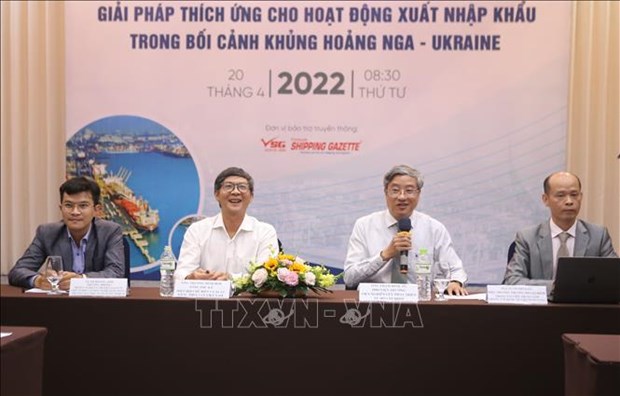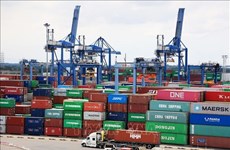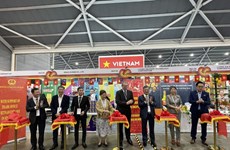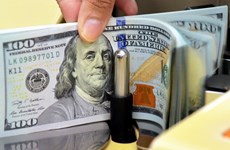Domestic businesses seek ways to adapt to Russia-Ukraine conflict
 At the event. (Photo: VNA)
At the event. (Photo: VNA)Hanoi (VNA) – While the Russia-Ukraine conflict has left negative impacts related to transport, inflation and international payments on import and export
activities, it could also create opportunities for businesses which adopted timely
adaptation measures, experts have said.
Speaking
at a workshop, entitled "Adaptive solutions for import and export
activities in the context of the Russia-Ukraine crisis" organised by the
Vietnam International Arbitration Centre (VIAC) in collaboration with the Ho Chi
Minh City International Integration Support Centre (CIIS) on April 20, VIAC Chairman Vu Tien
Loc said the Russia-Ukraine conflict are considered as one of the
hot spots causing direct impacts on the economies of many countries.
As
Vietnam's important trading partners in the Eurasian region, import and export
activities between Vietnam and Russia as well as Ukraine have also experienced
significant changes. Businesses have not only faced disruption in the supply
of raw materials and fuels but also affected the delivery of goods and increase
transportation costs, he said.
Pham
Binh An, Deputy
Director of the HCM City Institute for Development
Studies, said Vietnam's two-way trade with Russia and Ukraine
reached about 7.6 billion USD last year, accounting for 1.2 percent of the country's
total import and export turnover.
The
Russia-Ukraine conflict has thus both directly and indirectly affected Vietnam's
economy, he said.
Vietnamese enterprises have not only had difficulties in
the direct import of some products from Russia and
interruption in exporting products to Russia and Ukraine, they also have to
face competition in purchasing raw materials from other markets, An said.
The
disruption of the supply chain in the Russia and Ukraine markets has greatly
affected seafood enterprises in Vietnam as well as other countries when most of
the raw materials are imported from Russia, Truong Dinh Hoe, General Secretary
of the Vietnam Association of Seafood Exporters and Producers (VASEP)
said, adding that orders have been continuously delayed and canceled, resulting in
congestion and losses for bussinesses.
To deal
with the above-mentioned problems, Loc suggested that businesses should have
long-term strategies to cope with the fluctuations in the market. It was
necessary for them to be equipped with solutions on risk management and
handling disputes to be more resilient and resume business operations quickly
in the near future, he said.
An
agreed, saying that enterprises should actively diversify markets and supply as
well as payment methods. He added that it is a must for them to study the
incentives that free trade agreements, which have become effective, brought
about to reduce costs and improve competitiveness.
Meanwhile,
Hoe said, in response to the Russia – Ukraine conflict, seafood enterprises
have adjusted business activities in a timely manner. Accordingly, enterprises
have proactively carried out quick payment measures through channels from
foreign banks and private banks.
Seafood
enterprises are actively looking for opportunities to increase the market share
of pangasius as there is a shortage of white fish supply in Europe, he
said./.













